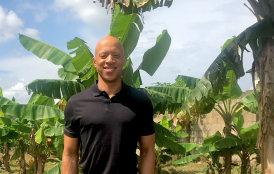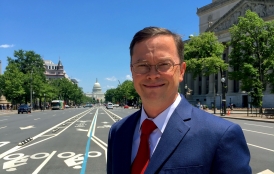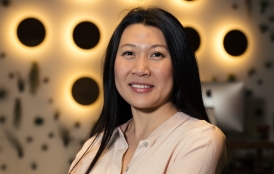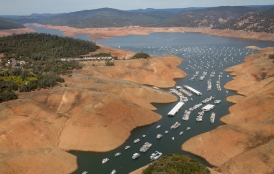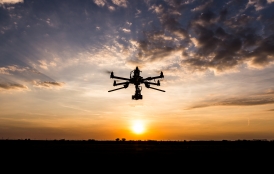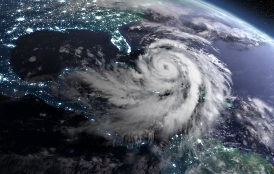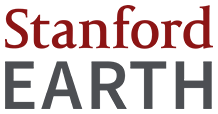The Stanford School of Earth, Energy & Environmental Sciences is now part of the Stanford Doerr School of Sustainability.
This page is currently being maintained for archival purposes only. For the latest information, please visit us here.
Chris Field: A Man for All Climates
Field sees the big picture and distills complex detail into a cohesive whole. It’s no wonder the U.S. tapped him for leadership of the U.N.'s top climate change organization.
By
Ker Than
<p>Stanford School of Earth, Energy & Environmental Sciences</p>
September 28, 2015
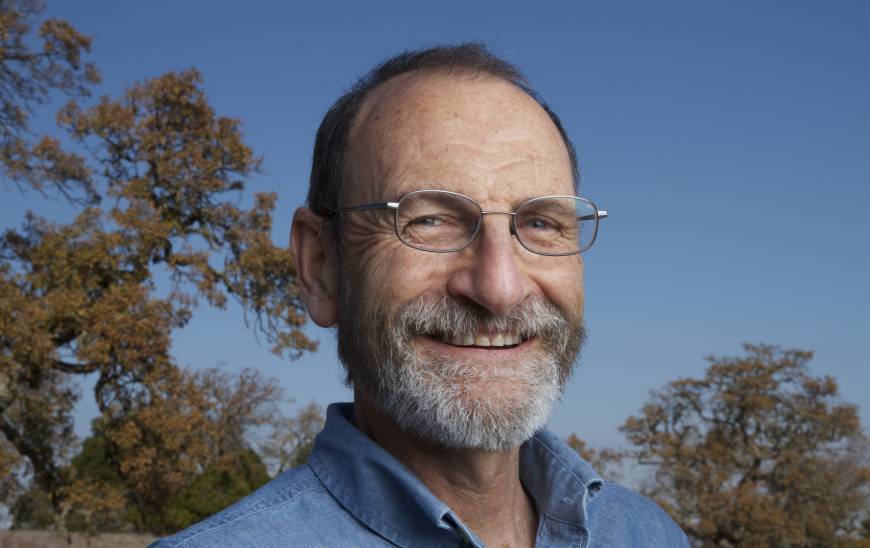
<p>Credit: Paul Sakuma/Courtesy of Stanford Woods Institute</p>
In late March of 2014, Chris Field gazed out upon a gathering of scientists and international delegates at a convention center in Yokohama, Japan and struggled to contain his fatigue.
Field, the director of the Carnegie Institution’s Department of Global Ecology at Stanford, is known as a master negotiator when it comes to getting scientists and policymakers to speak one language about climate change, its impacts, and potential responses. In February, the U.S. government cited Field's "deep experience and proven leadership" when it nominated him for the chairmanship of the United Nations’ Intergovernmental Panel on Climate Change (IPCC).
But that spring in Yokohama, Field was running on little sleep as he led an intense five-day negotiation to finalize a 30-page report for policymakers about the observed impacts of climate change and suggestions for how humanity can adapt. The report was a synopsis of a larger 2,000-page assessment report that assimilated the findings of more than 12,000 scientific studies and would be published by the IPCC the following year. Participants at the plenary session combed through each page of the summary report, parsing every word and sentence until there was unanimous agreement on their meaning and scientific accuracy. IPCC plenaries are famously grueling; the Yokohama sessions began around 9am and often lasted until the early morning hours.
As co-chair of the IPCC's Working Group II (WGII), one of three primary groups that contributed to the final assessment report, Field presided over sessions and was the chief negotiator. "Not only was Chris extremely good at thinking up solutions on the fly, he managed to do this long after most others’ brains had tired out," says David Lobell, an associate professor of Earth systems science at Stanford's School of Earth, Energy & Environmental Sciences who participated in Working Group activities and the plenary sessions.
"The world is going to be much more focused on solving the climate problem than asking whether or not the climate problem is real."
Lobell was also impressed by Field's seemingly endless patience and his diplomatic tact. “He always had a way of making the delegates feel like they were a valued part of the process. I think that’s a lot harder to do than it sounds,” says Lobell, who is also the William Wrigley Senior Fellow at the Stanford Woods Institute for the Environment and the Freeman Spogli Institute for International Studies.
Katharine Mach, director of science at the Carnegie Department of Global Ecology at Stanford, recalls one especially intense episode when a block of nations unexpectedly opposed a map in the report that depicted observed impacts linked to climate change across the world. Field responded to the disagreement by convening a special group of scientists to work through the night to develop alternate figures, while Mach and others on Field’s staff quietly worked the plenary floor to address the concerns of the interested governments.
“The next day, there was resounding support for one of the figures,” Mach says. “The intensity of the plenary from the previous day was transformed to calm.”
After the plenary concluded, a scientist who was in attendance wrote to Field praising his performance. “That was such a huge and hard task,” he wrote, “and you carried it off with such dignity and grace–I've never seen anything like it and I doubt I ever will."
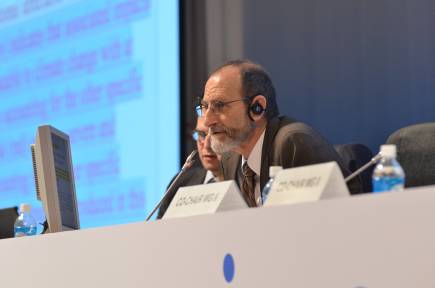
Credit: Patrick Freeman
History with the IPCC
In October, the IPCC’s 195-member nations will elect the new chair from a pool of five candidates at the group's annual meeting in Croatia. In preparation, Field and his team have spent the past few months meeting with secretaries of foreign affairs of member countries in conference calls and in person, sometimes visiting a different country every day.
"I tell each of them a little bit about what my background is, what I've done and how many people are asking for a continuation of, and a building on, the kinds of things that I did in the last series of IPCC reports," says Field, who is a professor of Earth systems science at Stanford's School of Earth, Energy & Environmental Sciences and also a senior fellow at the Stanford Woods Institute and the Precourt Institute for Energy.
The IPCC publishes a massive report every six to seven years on the current understanding of science related to climate change. The last one, the Fifth Assessment Report, was finalized in 2014. Field has served as co-chair of WGII since 2008, working with a team of more than 300 scientists to assess the effects, both socio-economic and natural, of climate change and the options for adapting to it. In 2007, Field was among 25 scientists who accepted the Nobel Peace Prize on behalf of the IPCC, which shared the prestigious award with former Vice President Al Gore.
In nominating him as the American pick for the IPCC leadership post, the U.S. Department of State also noted Field's impeccable scientific credentials. For two decades, Field has led major experiments on responses of California grassland to global change. As the faculty director of the Jasper Ridge Biological Preserve at Stanford, Field oversees experiments that use combinations of carbon dioxide, temperature, moisture, and nitrogen to study the ecological impacts of global change and grassland feedbacks to the climate system. His research has been recognized with several American and international awards, including the Max Planck Research Award, the Roger Revelle Medal, and the Stephen H. Schneider Award for Outstanding Climate Science Communication.
A common thread that runs throughout Field's diverse research projects is a focus on how complicated units or systems interact and the kinds of emergent or unexpected properties that can arise as a result of those interactions. As a PhD student at Stanford in the 1980s, he investigated how the different leaves on a plant interacted and fit together. "As my work progressed, I was applying similar systems-level thinking at the level of whole forests, then whole continents and eventually the whole world," Field says.
In his research and through his IPCC work, Field has earned a reputation for being able to quickly grasp the core concepts and techniques across a wide range of scientific disciplines, many of them far removed from his own. "I tend to be an opportunist where the right combination of resources and people come together to do something exciting," Field says.
This inclination toward interdisciplinary research has led Field down some interesting avenues of inquiry. He has in recent years published papers on the philosophical and economic context of decision making under uncertainty, the essential features of problem solving when a common pool of resources is involved, and technologies for boosting solar energy in California, just to name a few. Field credits his students with continually introducing him to new ideas. "In many cases I've gotten deeply involved in a particular research theme because a graduate student was interested in it, and we ended up working on it together," Field says.
The ability to slip with ease between different streams of science is an essential trait for the leader of the IPCC, says Pamela Matson, the Chester Naramore Dean of the School of Earth, Energy & Environmental Sciences.
"That really is not an easy task," says Matson, who has contributed to the IPCC reports. "The scientific sweep of the IPCC reports run the gamut from the physics of how ice sheets are melting to the sources and consequences of each particular greenhouse gas to the potential for carbon policies or geoengineering with aerosols to limit climate change. Chris has a broad and deep understanding of these aspects and many, many more.”
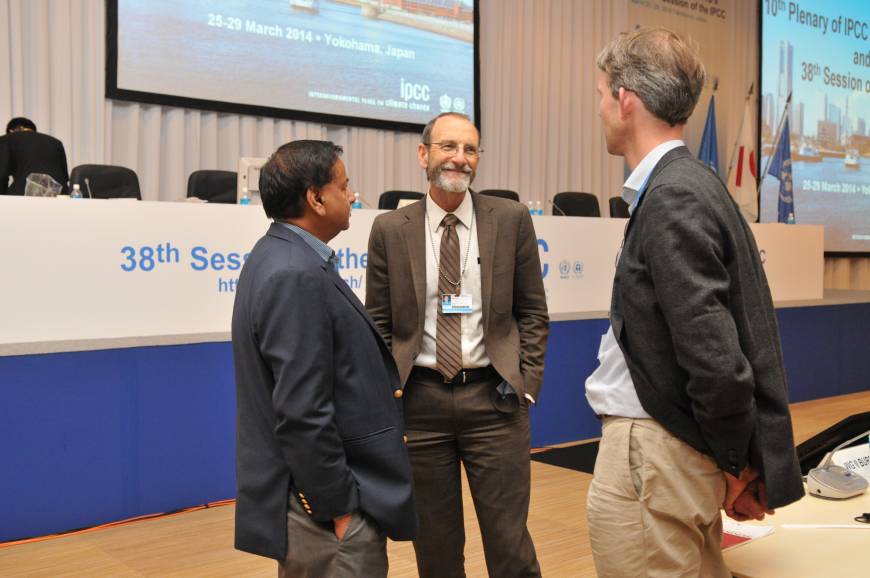
Credit: Patrick Freeman
The Man
Tall and lean, Field has a salt-and-pepper beard cropped short and wears wire rim glasses. Those who meet him often remark on his uncommon blend of intellect, calmness, and lack of ego, so it’s not surprising that these traits are part of his leadership style. “He's an extremely generous leader and collaborator,” says Noah Diffenbaugh, an associate professor of Earth System Science and senior fellow at the Stanford Woods Institute. “He's not in it for the advancement of Chris Field. He always puts his colleagues, the project, the department, and the IPCC first.”
What was surprising, even to those who have known and worked with Field for a long time, was the deftness with which he facilitated communication at the plenary sessions between the scientific and governmental representatives, two communities withd very different cultures. "Chris has the ability to see a challenge from multiple perspectives and is very skilled at forging compromises on very difficult issues,” said Stanford Woods Institute Director Jeffrey Koseff. “He also has an excellent sense of what the most important problems are that we should be working on, and he can articulate them in a very clear and compelling fashion.”
That awareness was reflected in the inclusive nature of the WGII report itself. “Chris really focused on helping all of the authors understand what the people who are having to make real-world decisions are interested in; what they're concerned about; what the barriers are; and what they see as opportunities, and then helping us integrate that into our scientific assessments," Diffenbaugh says. “People like to complain about how grueling the plenaries are, but the reality is that the reports that Chris has led have been both more insightful and more useful because he prioritizes listening and inclusion.”
Many of Field's colleagues credit him with framing climate change not just as a series of potential impacts but as a challenge in risk management in the IPCC Fifth Assessment Report. "That framing allows you to discuss solutions and adaptation strategies, and to talk about how we can use climate change to build a better world," Mach says.
“The decision makers are used to dealing with probabilities and uncertainties,” Diffenbaugh says. “If we can find ways to credibly provide that, then it will fit in with the way that the decision makers are used to making decisions.”
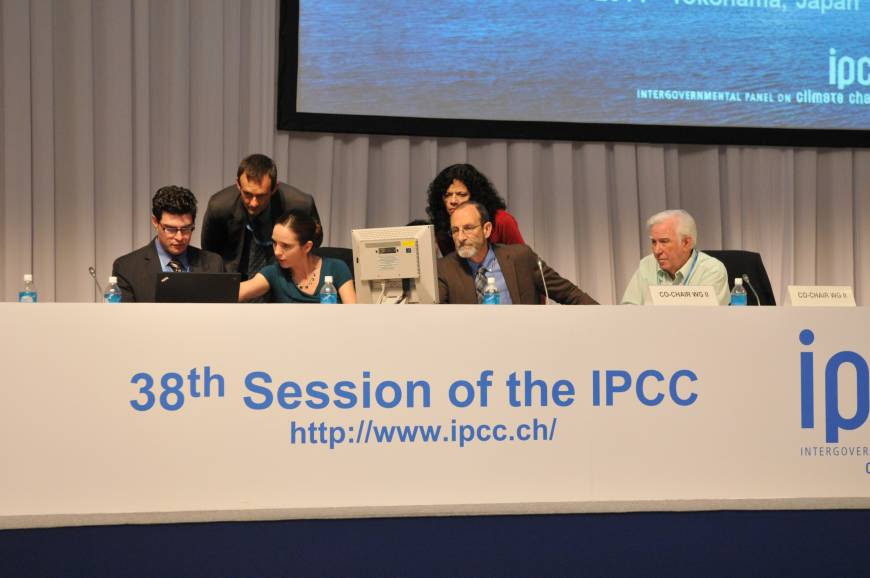
Credit: Patrick Freeman
A New Era
Field's interest in the chair position stems from his deep belief that the IPCC has reached a crucial point in its 17-year history. Early IPCC reports focused on the link between the warming atmosphere and the increased rates of greenhouse gas emissions from human activity, but most countries have moved beyond that debate now. "It's a new era in the IPCC," Field says. "The world is going to be much more focused on solving the climate problem than asking whether or not the climate problem is real."
Field thinks there is tremendous potential for the IPCC to be a force for good in addressing the challenge of climate change. For example, he envisions the organization helping improve the public's understanding about climate change science. "The IPCC plays a critical role in informing the public so that governments are able to act as the public wants on climate change,” Field says. “Finding ways to make sure that the public understanding is fine-tuned and that the public is able to interact effectively with their governments, in order to get them to understand that ambitious action is going to be something that is perceived as delivering benefits."
Field says he would also like to see the IPCC reports include more participation from the private sector, such as oil companies and reinsurance firms, and more integration of IPCC working groups. Field also envisions providing more user-friendly, customizable and interactive electronic data for the public on an ongoing basis, instead of one massive report every few years.
As the climate change conversation evolves from debates about causes to one of appropriate responses to reduce climate change and adapt, IPCC reports have included new chapters on topics that cover the ethical and social issues associated with climate change, such as the relationship between human conflict and rising temperatures. As chair, Field would have a hand in determining which topics to include in future reports to best address the needs of the world's governments.
"The amount of available knowledge continues to explode," Field says. "We need to find ways to be more strategic to assess that knowledge in a way that keeps the findings compact and useful."
Field also believes the IPCC chair can play a crucial role in crystalizing each country’s unique vision about how it will respond to climate change. "In many cases, leadership is finding a way for people to be able to clearly express the things they want to share, that they want to do," Field says. "It's not about me imposing my own views as much as working with others to develop a shared vision."
At the Yokohama plenary, Field could have taken a more assertive approach to the sessions, cutting conversations short in an effort to speed them up. But he had observed that co-chairs who used this strategy at other plenaries just ended up slowing things down even more. Furthermore, a top-down lecture approach could have resulted in delegates forcing the scientists to remove whole sections from the summary report or failing to approve it altogether.
"Chris views the approval sessions as a gift, an opportunity, an adventure, a challenge–not a battle,” Mach says. "The sessions enable the summaries to transcend the scientific community. Each government delegate returns home after the week deeply invested in the report, presenting it in national contexts as a product of his or her own, not simply another report from the halls of academia."
On the morning of the final plenary session, after 16 straight hours of deliberations, Lobell looked over at his colleague and long-time mentor and saw that Field was fast asleep in his chair.
"He was finally able to rest," Lobell says. "In the end, Chris got through almost everything that he wanted."


